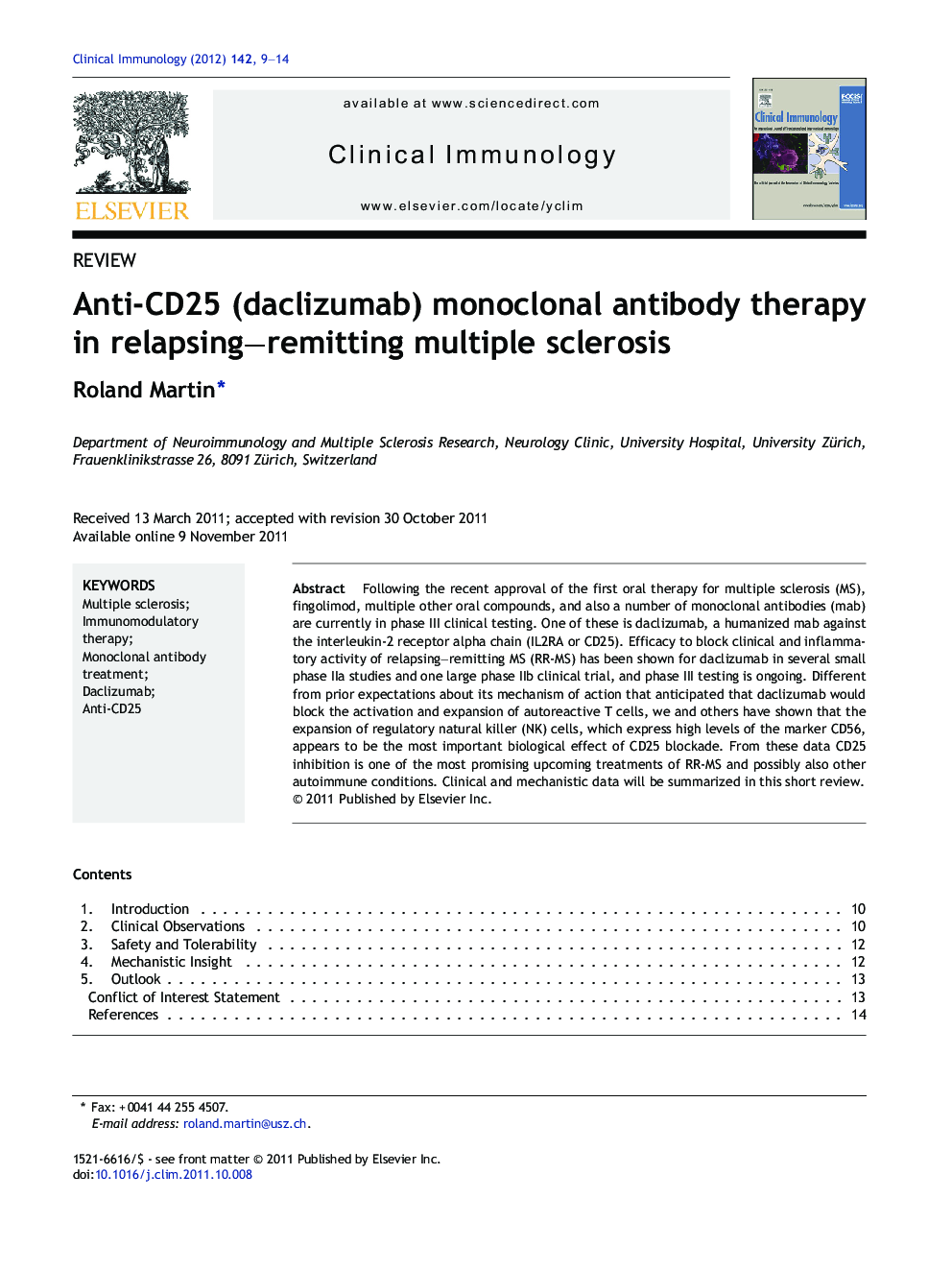| Article ID | Journal | Published Year | Pages | File Type |
|---|---|---|---|---|
| 3257077 | Clinical Immunology | 2012 | 6 Pages |
Following the recent approval of the first oral therapy for multiple sclerosis (MS), fingolimod, multiple other oral compounds, and also a number of monoclonal antibodies (mab) are currently in phase III clinical testing. One of these is daclizumab, a humanized mab against the interleukin-2 receptor alpha chain (IL2RA or CD25). Efficacy to block clinical and inflammatory activity of relapsing–remitting MS (RR-MS) has been shown for daclizumab in several small phase IIa studies and one large phase IIb clinical trial, and phase III testing is ongoing. Different from prior expectations about its mechanism of action that anticipated that daclizumab would block the activation and expansion of autoreactive T cells, we and others have shown that the expansion of regulatory natural killer (NK) cells, which express high levels of the marker CD56, appears to be the most important biological effect of CD25 blockade. From these data CD25 inhibition is one of the most promising upcoming treatments of RR-MS and possibly also other autoimmune conditions. Clinical and mechanistic data will be summarized in this short review.
